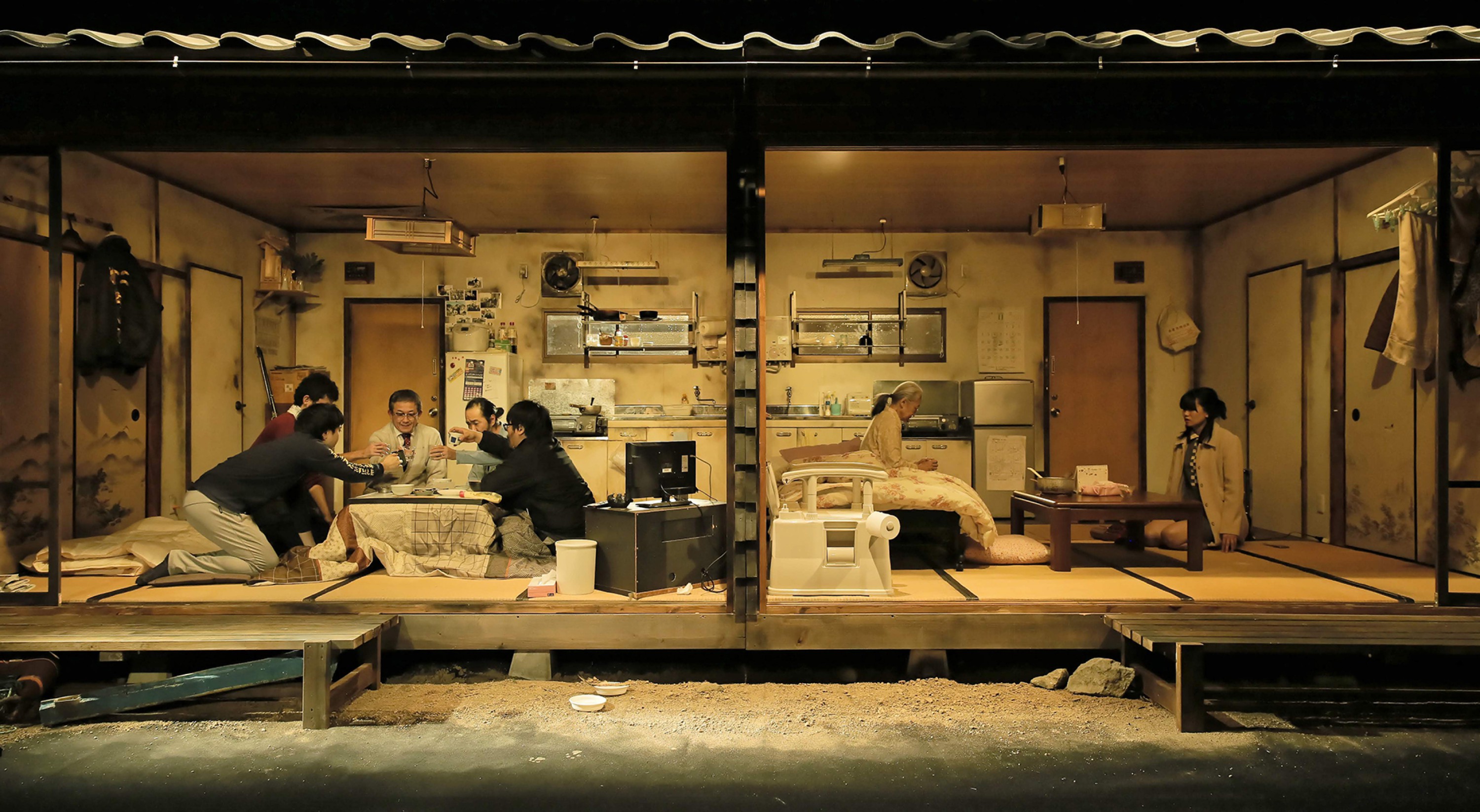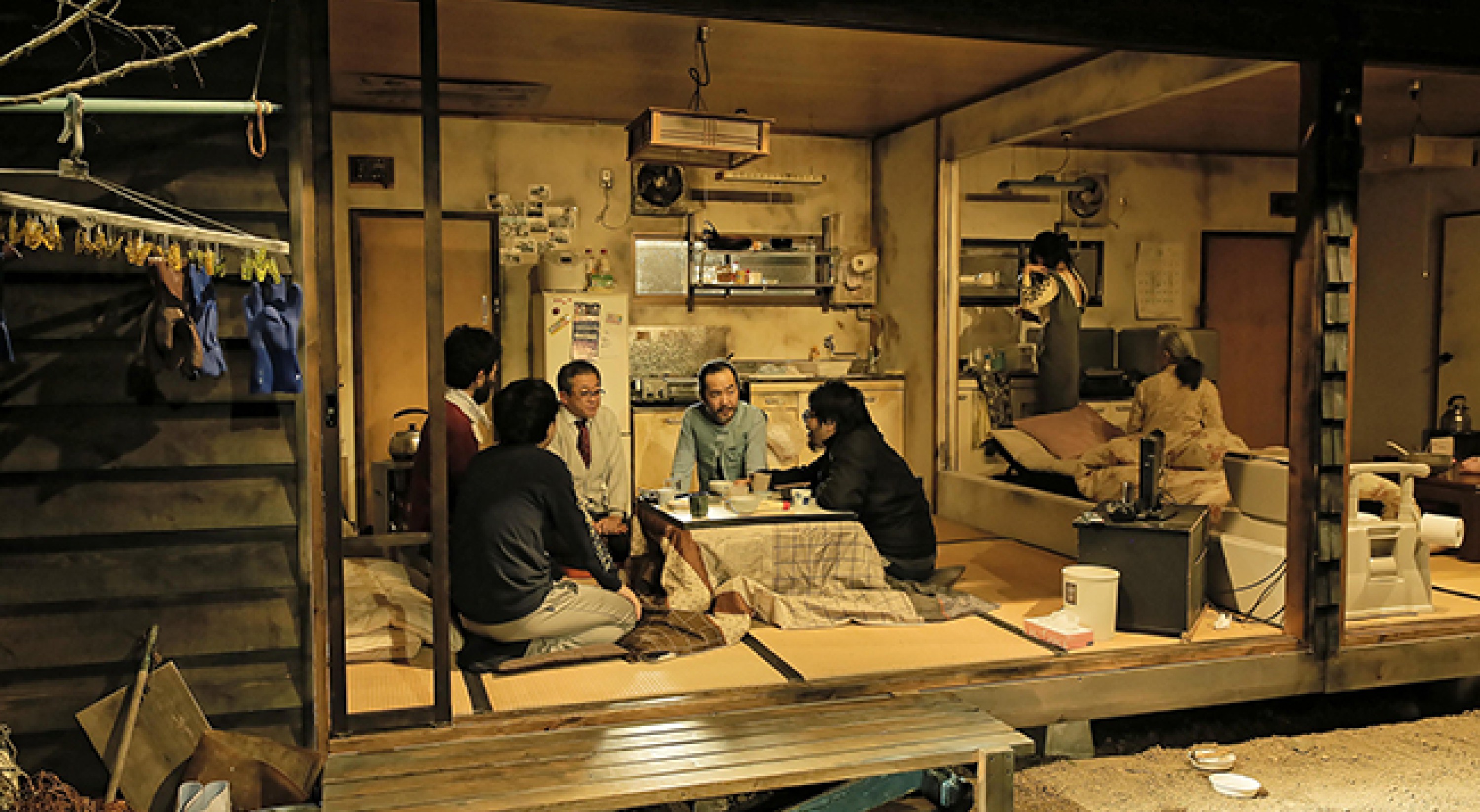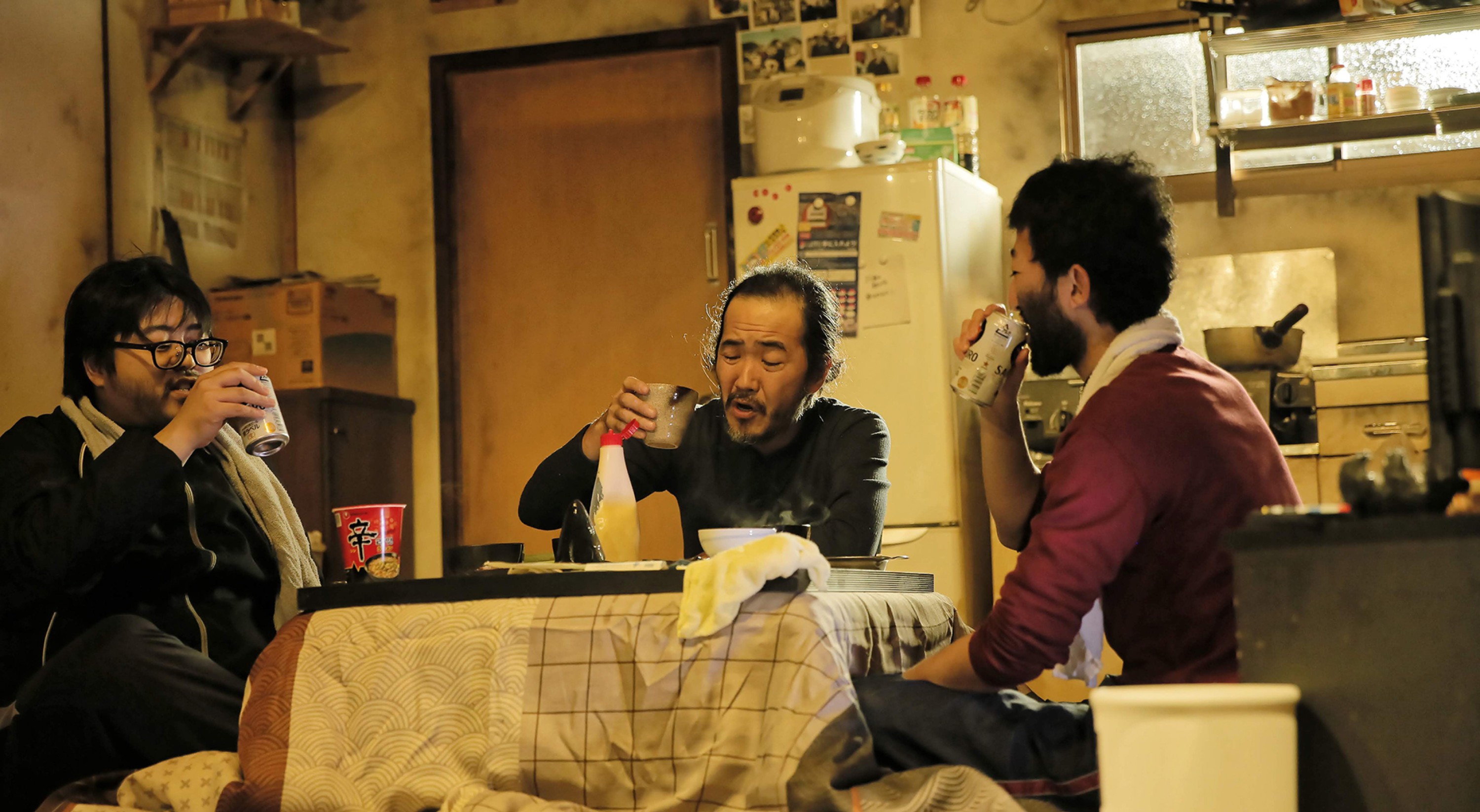Kurô Tanino
La Forteresse du sourire
novembernov 20 – 28
Direction and text by, Kurô Tanino
With Susumu Ogata, Kazuya Inoue, Koichiro F.O. Pereira, Masato Nomura, Hatsune Sakai, Katsuya Tanabe, and Natsue Hyakumoto
Stage design, Takuya Kamiike
Assistant stage design, Soko Takechi
Lighting, Masayuki Abe
Sound, Koji Shiina
This show is presented in association with T2G – Théâtre de Gennevilliers and Festival d’Automne à Paris.
With support from Fondation pour l’étude de la langue et de la civiliation japonaises under the auspices of Fondation de France, and Onda
A coproduction by Festival d’Automne à Paris
In association with T2G – Théâtre de Gennevilliers ; and Festival d’Automne à Paris
Amongst the unique, creative driving forces of contemporary theatre, what distinguishes the work of Kurô Tanino is his attachment to the hidden strangeness of our everyday gestures and lives. Beneath its ultra-realist facade, his latest piece delves deep into the unsettling paradoxes of the human condition.
In the distance can be heard the bucolic chirping of birds, which is then drowned out by the hearty laughter of men returning home. This is the opening scene of Fortress of Smiles. It would be no exaggeration to say that Kurô Tanino adores contrasts. For this his third invitation to the Festival d’Automne, the director confirms his dazzling talent in the creation of universes that are both vaporous and harrowing, gloomy and luminous, and in which the cracks in the fabric of everyday life shine through. Here, two neighbouring apartments enable us to observe two lives in opposition with each other: in one we find a fisherman who spends joyful evenings in the company of his colleagues, whilst in the other we are confronted with a man, his daughter, and his mother who is suffering from Alzheimer's disease. Between the symmetry of the staging and the dissymmetry of what is stake in their two lives, these heterogeneous existences, separated by a simple partition, bear witness to the overwhelming difficulty of coming into contact with those around us in our modern societies. Via the accounts of the worsening of a mental health condition and its knock-on effects, unimaginable scenes of insanity, the description of a turmoil which interferes with everything, and of something which cracks, bends, Kurô Tanino goes one step further in his exploration of the poetics of daily life, in his unique, radical way. In doing so, he affirms theatre's undying capacity as a vector for veracity and truth.
In the same place



